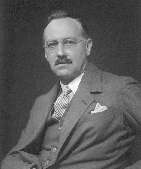Pre-Tolkien Challenge, Lord Dunsany
 Talk about saving the best for last. This third chapter of the Barbarian Bookclub’s pre-Tolkien challenge brings in one heck of a cleanup hitter in Lord Dunsany.
Talk about saving the best for last. This third chapter of the Barbarian Bookclub’s pre-Tolkien challenge brings in one heck of a cleanup hitter in Lord Dunsany. My only exposure to this great old one was The Worm Ouoroboros which provided a clinic on how to craft stories with just enough world building, how to provide copious details without dragging the plot, and how to incorporate all sorts of fantasy tropes that we’ve come to take for granted in surprising and original ways – a feat given how the man wrote these things long before they became settled into their current stranglehold on reader’s expectations due in no small part to Tolkien himself.
[Editorial aside: Thanks go out to the few readers who contacted me about this error behind closed digital doors. But readers should feel free to call out my errors in public. I’m no expert and value truth and accuracy more than I do status. My ego is robust enough to handle good faith public correction.]
Where Tolkien Lord of the Rings presents fantasy worlds with an earnest and professorial tone that adds to that epic’s verisimilitude, Dunsany’s voice rings with the leaning-in pleasure in the fantastic of your grandfather seated before a fire. With something of a wink and a nod in the telling, one never knows whether Dunsany is relating a tale handed down for generations or right off the cuff, and that lends an air of pleasurable suspense that tops Tolkien in my book.
Appropriately enough, I dove into Tales of Wonder expecting to find all sorts of great traditional fantasy written in a fairy-tale-esque manner, and instead got a series of stories that didn’t quite provide the sort of fantasy I was expecting. In The Three Sailor’s Gambit, sailors use a magic chess crystal to win games at a quid a game, and perhaps at the expense of their souls. In The Watch-Tower, the narrator encounters a ghost who warns him that despite the West’s seeming invincibility, he’d better wake up because the Saracens are coming.
Ahem.
And in the third chance for Dunsany to provide a fantasy tale, A Tale of London, he provides a vision of London as viewed through a magic bowl by a hasheesh eater and told to the Sultan. It might be any fantasy city, but this time around it’s a foreigner’s view of London as near to heaven as one might find on this earth.
With that, having struck out on finding a single legitimate fantasy story of the sort we now associate with the genre, the whole point of the exercise really struck home. By looking for knight and wizards and goblins and dragons, I was looking for fantasy in all the wrong ways. Fantasy isn’t the mish-mash of D&D we think of today. It isn’t refined and improved by stripping the magic and adding lots of rape. It isn’t made more believable by the use of a dedicated and rational system of magic. It needs neither gritty realism nor whimsical nonsense – it just needs a touch of the fantastic.
In a strange way, the admonition of the opponents of Western Civilization – those who lament the constant churn of fuax-medieval setting – have the right of it. Fantasy writing need not be constrained by the rigid rules of the modern fantasy culture. This isn’t punk rock, with its detailed and iron-clad rules about how to rebel against the rules. It’s a genre whose core conceit involves breaking the rules of reality in surprising ways, and thereby providing a glimpse of deeper truths that are often obscured by the cruft of ten thousand years of civilizational growth.
Forget making fantasy great again, we need to make fantasy fantastic again. And that means ignoring the rules of the genre that have grown and taken root in the shadow of Tolkien.